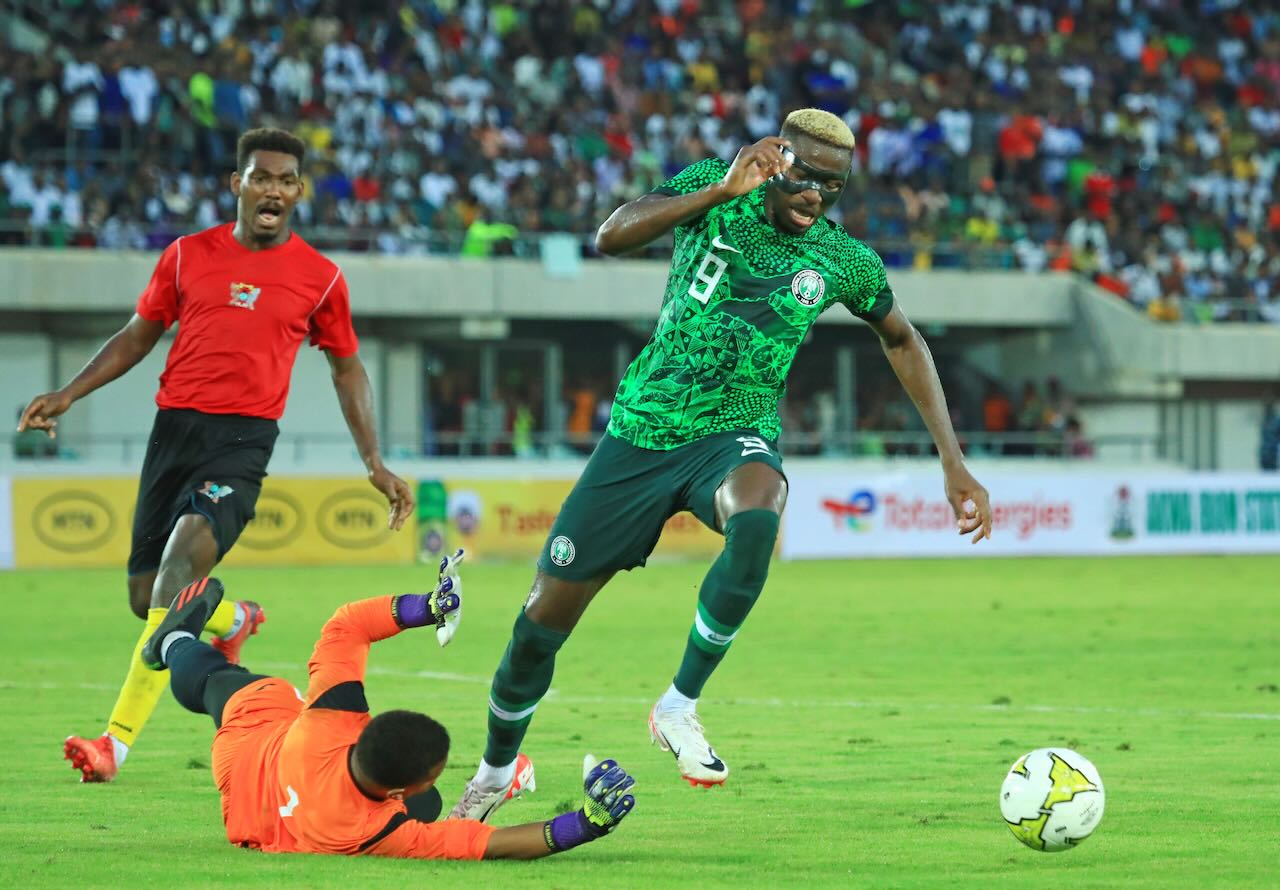Sadio Mane’s Senegal are aiming to retain their title and Mohamed Salah is chasing a first trophy with Egypt at this year’s Africa Cup of Nations, which begins in Ivory Coast on January 13.
A strong field also features 2022 World Cup semi-finalists Morocco and a Nigeria team spearheaded by African footballer of the year Victor Osimhen, as organisers hope the focus will remain solely on the football at this edition of the continental showpiece.
Ivory Coast is hosting the AFCON for the first time since 1984, when only eight teams participated with Roger Milla’s Cameroon emerging as champions.
This time there are 24 teams at a tournament initially scheduled to be played in June and July last year in order to avoid a clash with Europe’s top leagues.
However, fears over staging it during the rainy season eventually led the Confederation of African Football to push it back to the more traditional January and February slot.
Focus on security
The last AFCON, two years ago in Cameroon, was overshadowed by the tragedy at the Olembe Stadium in Yaounde, when eight people died in a crush and stampede.
Security is therefore at the forefront of organisers’ thoughts this time, with 1.5 million fans expected to attend from outside the country.
Matches will be staged in six stadiums across five cities, with two venues in the economic capital, Abidjan.
These include the 60,000-capacity Ebimpe Olympic Stadium, constructed especially for the competition. It will be the venue for the opening game between Ivory Coast and Guinea-Bissau, as well as the February 11 final.
Games will also be played in the capital Yamoussoukro and neighbouring Bouake, as well as in San Pedro on the coast and in Korhogo, in the north near the borders with Mali and Burkina Faso.
Organisers will also hope the quality of the football is better this time than in 2022, when an average of fewer than two goals were scored per game.
Morocco will be expected to go far, with Africa’s top-ranked nation still riding high from their run to the last four in Qatar just over a year ago.
They have a squad full of players based at leading European sides, with Paris Saint-Germain right-back Achraf Hakimi the headline name, but Morocco have not won the AFCON since 1976.
“With each competition that goes by we get further away from the date when we last won it, but that is not a reason for us to put extra pressure on ourselves,” insisted coach Walid Regragui recently.
Can Senegal retain title?
Morocco are in Group F with DR Congo, Avram Grant’s Zambia and Tanzania, who have never won a game at the AFCON.
Senegal are in a tougher-looking section with neighbours Gambia, the Guinea of Bundesliga hotshot Serhou Guirassy, and Cameroon.
Mane and his team are aiming to become the first nation to retain the title since Egypt’s run of three in a row between 2006 and 2010.
“We have only ever won it once, so we are eager to go there and win, and keep winning,” insisted Senegal coach Aliou Cisse.
Winners in 2019, Algeria are aiming to make up for their woeful showing two years ago, when they exited in the group stage.
Egypt, led by Portuguese coach Rui Vitoria, boast the biggest star of all in Salah as they target a record-extending eighth AFCON title to banish the memory of defeats in the finals of 2017 and 2022.
That is what Egyptians are dreaming of, although Salah’s manager at Liverpool, Jurgen Klopp, is hoping for a different outcome given that his team are currently chasing the Premier League title.
“From a personal point of view, I would be happy if they go out in the group stage but that’s probably not possible. They can go on and win it,” Klopp admitted.
Then there is the host nation, no longer the force they were when they last won the title in 2015 with Yaya Toure as captain, but looking to make the most of home advantage.
Nigeria, with Bayer Leverkusen sensation Victor Boniface as well as Osimhen, have an almost unrivalled amount of depth in attack.
South Africa, meanwhile, are back after missing the last edition, and have a team that leans heavily on the country’s leading club side, Mamelodi Sundowns.
The winners of the trophy will receive a record $7 million in prize money, 40 percent more than what champions Senegal pocketed in 2022.
Stay informed with The Namibian – your source for credible journalism. Get in-depth reporting and opinions for
only N$85 a month. Invest in journalism, invest in democracy –
Subscribe Now!







